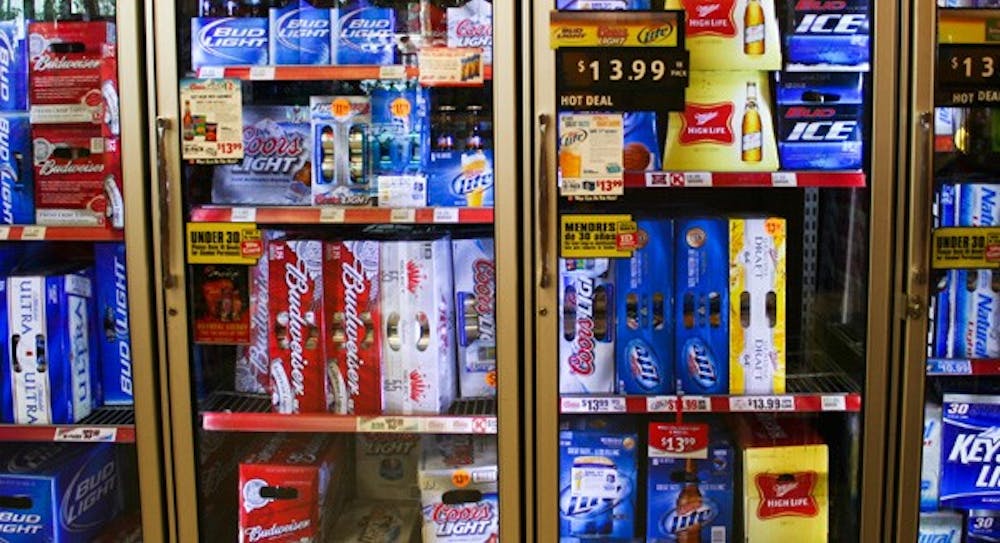ASU professors in the School of Criminology have teamed up with the Glendale Police Department to combat the growing problem of beer theft at local convenience stores.
Anywhere between five and 10 beer runs occur weekly in Glendale, said Lt. Frank Balkcom of the Glendale Police.
The professors and police worked together to create a public service announcement about the consequences of stealing beer.
The PSA began running on Glendale 11, a local city channel, on March 29 and will continue to run until 2012. The clip is also available on YouTube and is being shown in high schools.
The two-minute-long PSA shows a teenager attempting to do a “beer run” at a convenience store. The teen subsequently gets arrested and doesn’t graduate from school.
The clip ends with a message warning teens about the unintended consequences of their actions and encourages them not to give into peer pressure from friends.
The PSA was created after Glendale Police and ASU’s Center for Violence Prevention and Community Safety discovered the problem of beer theft at convenience stores and concluded that many of these thefts were caused by repeat offenders and party-hopping teens, said Mike White, associate professor in the School of Criminology and associate director for ASU’s Center for Violence Prevention and Community Safety.
Balkcom said the PSA is specifically being marketed toward teens because they are often unaware of the consequences of their actions.
“A lot of people underestimate that it’s an actual theft, and a small amount of people are continuously offending,” Balkcom said.
Although a first-time theft only results in a misdemeanor, a repeat offender could be charged with felony burglary, he said.
He also pointed out that beer runs could escalate into more serious situations.
“If a person knocks over a clerk while trying to escape and that clerk dies, a beer run can turn into a homicide,” he said.
White said the two groups started working together in fall 2009 as part of Glendale Police’s Smart Policing Initiative, a two-year project funded by a grant from the Department of Justice.
The partnership focuses on using evidence-based practices and studies the theft problem using the SARA model.
SARA stands for scanning, analysis, response and assessment, White said. This model helped the team discover that of the convenience stores in the area, Circle K stores were the No. 1 target in Glendale for beer thefts, he said.
This model helps by looking at statistics to determine persistent problems and their causes in order to develop responses to assess their impact, White said.
“Circle K locations hold the top 10 stops for generators of police calls,” he said. “One store averaged having 1.5 calls per day.”
White said it has become clear that Circle K is at fault for being disproportionately targeted.
“Circle K is primarily responsible for this problem,” White said. “There is a clear culture in these stores that theft is an acceptable loss.”
He said the group has worked to change this occurrence, but Circle K has resisted recommendations of adopting better business practices. Such recommendations include better educating employees on crime prevention, adding more surveillance and designing stores in a way that makes it harder to steal.
Circle K representatives could not be reached for comment.
ASU professors and Glendale Police are not only working on this program to keep teens out of jail, but also to reduce the amount of thefts so police can focus on more serious problems.
“Beer runs, and theft in general, use up a disproportionate amount of valuable and limited police resources,” White said.
Reach the reporter at danielle.legler@asu.edu





